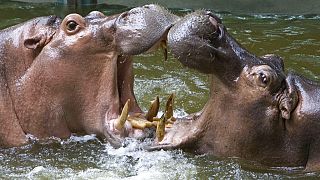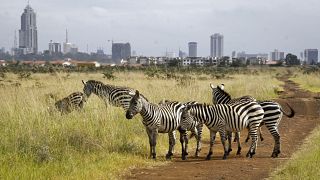Mozambique
In the heart of Mozambique, 12,000 square kilometres of lush landscape and natural habitats make of Gorongosa National Park a treasure.
The civil war which ravaged the country between 1977 to 1992 caused casualties among wildlife. The elephant population, for instance, was virtually decimated for its meat and ivory, then traded for weapons.
30 years later, biodiversity is increasing and according to the latest animal count, done in October this year, the local fauna has reached a new high, over 102,000 animals.
"Some species are growing and others are declining in numbers. This is ‘normal’ in such a large, open natural system where predation and competition are increasing and favouring some species over others," Science department director Dr. Marc Stalmans said.
Climate crisis
The team surveyed a core 60% of the Park over a period of 12 days.
"There is a very fertile, a very productive system", Mark Stalmans who works at the Gorongosa National Park Science Department.
"So if you got a vibrant population that's left, if you get them protection, with a good drainfull, with a frequent flooding, very fertile soil that provides for good grazing you can actually have a very rapid growth in those numbers"
The uncertainty over climate, however, is making National Park officials apprehensive. The "imbalance" in nature, they say, is already "noticeable" in such vital phenomena as rainfall.
"Sometimes it falls very early, sometimes it falls very late and sometimes it falls much less, or not at all", Pedro Muagura, an Administrator at the Gorongosa National Park said.
So, all this is going to impact on animal reproduction, it's going to impact on the vegetation and the migration of the animals is no longer what it should be. This not only harms the fauna, but also "decomposes" various activities".
The conclusions still need further studies. Until science suggests answers, Gorongosa will continue to adapt to the changes













Go to video
First Malaria treatment for babies approved
01:36
CO2 emissions on track to push Earth beyond 1.5 degree threshold by 2028, report finds.
01:51
In this Moroccan crocodile park, children learn about the environment
00:24
Greenland and Iceland saw record heat in May
01:05
Zimbabwe to cull 50 elephants, distribute meat to locals
01:37
World likely to breach temperature records, exceed 1.5°C limit by 2030